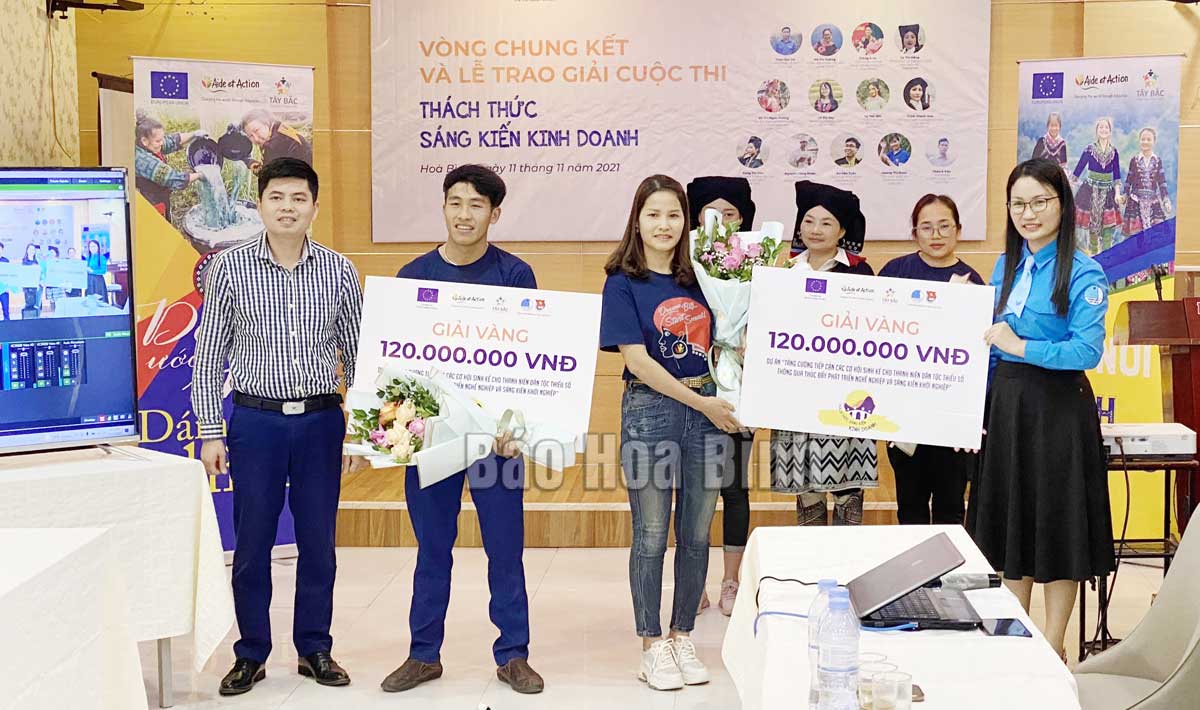



The contest was designed for young people of ethnic groups with new and innovative startup ideas which contribute to local economic development.
It was sponsored by the European Union and Standard Chartered Vietnam and carried out by the Aide et Action, the north western cooperation and development centre and the youth federations of Hoa Binh and Lao Cai provinces.
Members in 13 outstanding projects of the two provinces presented their ideas to call for investment.
Ethnic youths with startup ideas which have yet to be realised or are running household businesses, cooperatives, small-and medium-sized enterprises, between the ages of 16 and 30, especially females, were eligible for the contest.
The projects covered various sectors, notably in tourism, agriculture, and business operation adjustments to adapt to COVID-19. They aimed to resolve social and environmental issues in line with local development orientations.
Hoa Binh had more than 10 projects, of them four in the group of contestants residing in Da Bac and Mai Chau districts competed in the final round.
They included a project to restore and conserve ‘do’ paper making by Lo Thi Trang and another to produce natural yarn from gai (ramie) plant by Trinh Thi Thanh Hoa in Da Bac district.
The other was a project on ‘pieu’ scarf by Ha Thi Hoa and another on Hang Kia tourism and agricultural services by Giang A La in Mai Chau.
The organising board presented the gold prizes to five projects of Hoa Binh and Lao Cai. Two honoured projects of Hoa Binh were the one to produce natural yarn from gai (ramie) plant and another on Hang Kia tourism and agricultural services.
Each project will receive an assistance worth 120 million VND (5,300 USD) and support from the organisers for the projects’ launch in 2022.